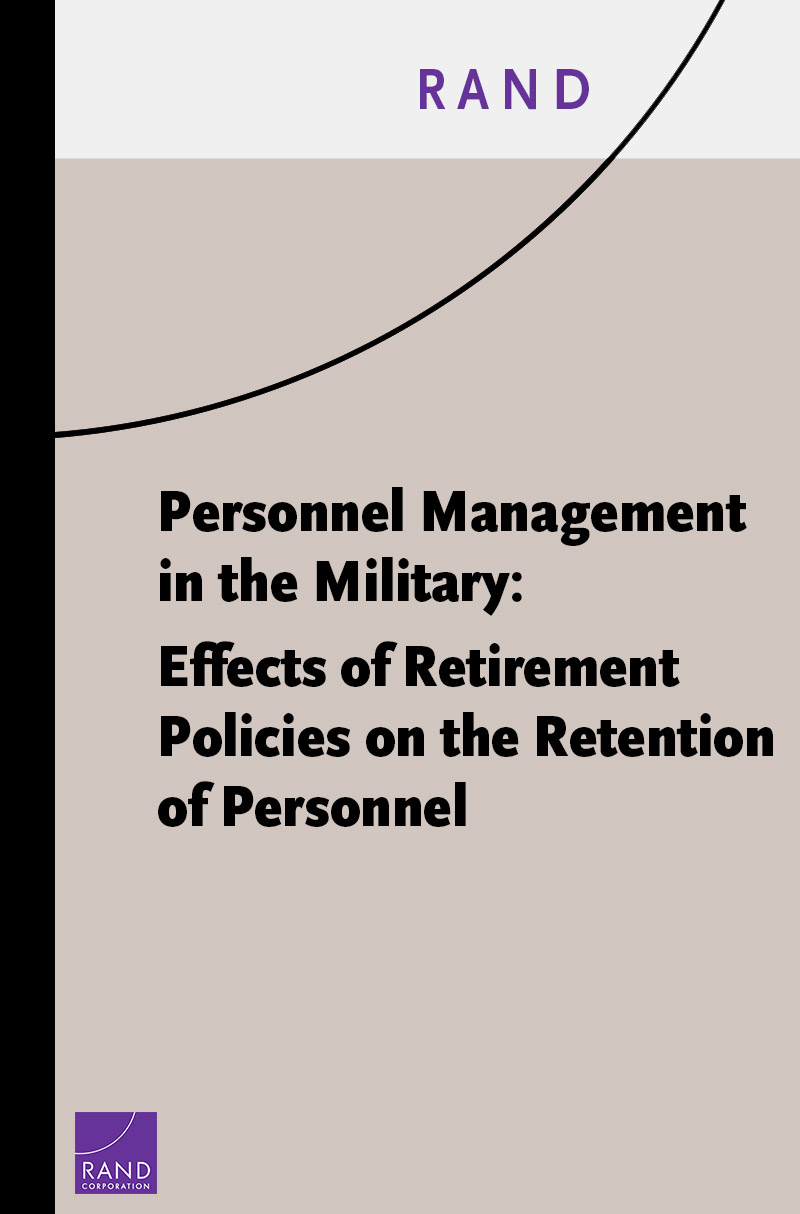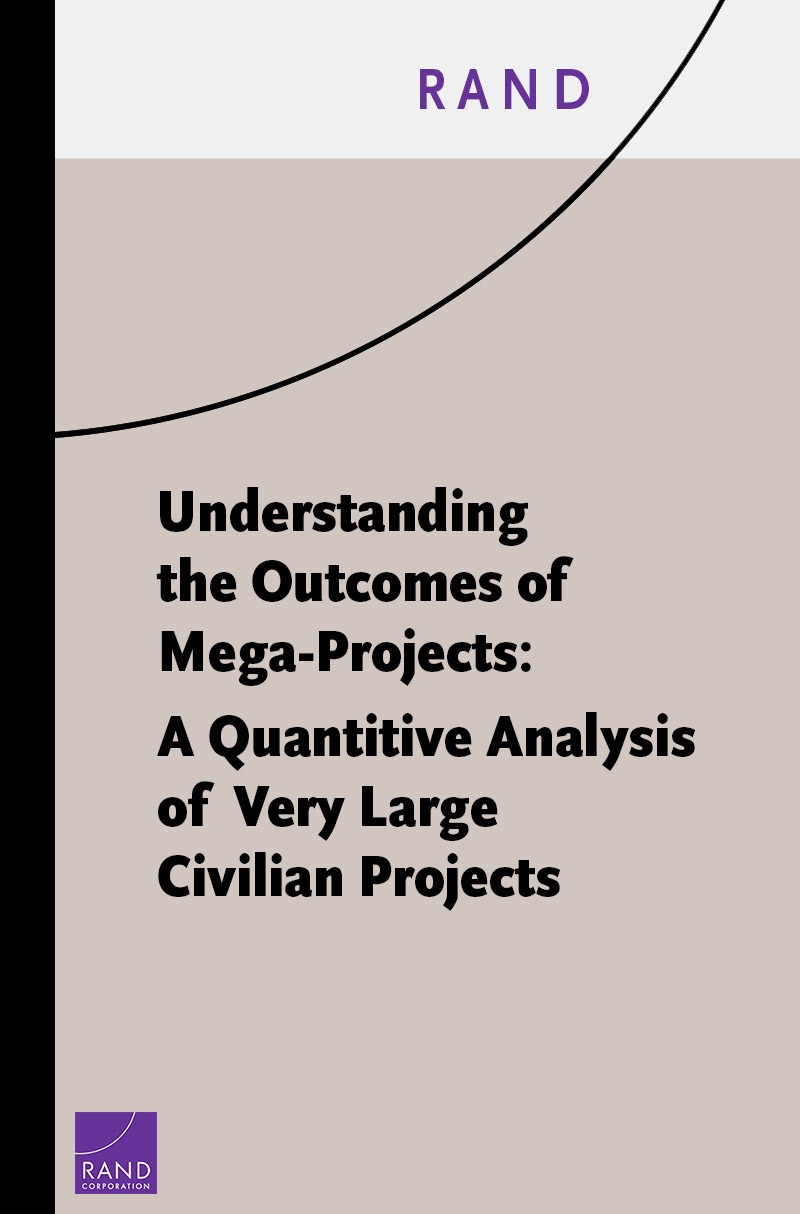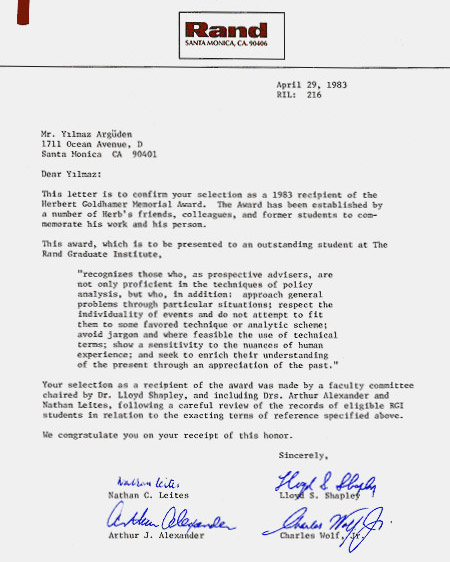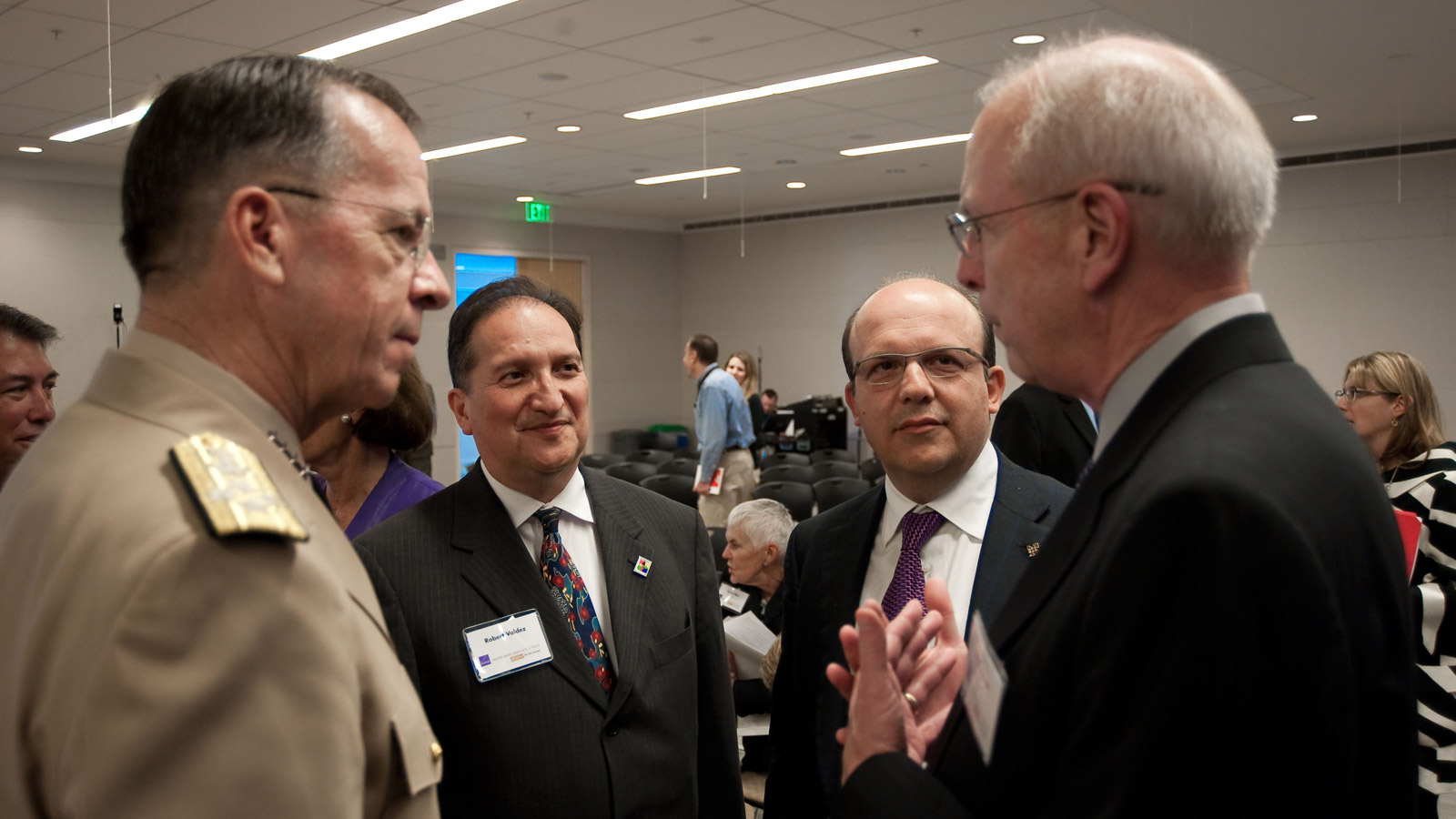RAND Corporation, bünyesinde birçok Nobel ödüllü bilim adamı bulunduran ve İkinci Dünya Savaşı’ndan bu yana ABD’nin birçok stratejisinin oluşturulmasına katkıda bulunan bir düşünce merkezidir.
Yılmaz Argüden, RAND Corporation’da enerji politikası, vergi politikaları, insan kaynakları sistemleri ve mega projelerin yönetimi konularında araştırmalar yaptı. Çalışmaları çeşitli alanlarda politika değişikliklerine yol açtı ve birçok yayına referans kaynağı oldu.
Tez Çalışmaları Sırasında İki Önemli Projeye İmza Attı

Personnel Management in the Military:
Effects of Retirement Policies on the Retention of Personnel
Document No: R-3342-AF
Year: 1986
Pages: xxi, 203
ISBN: 0833006959
Author: R. Yılmaz Argüden
Keywords: Armed Forces–Recruiting, enlistment, etc.–Mathematical models; Armed Forces–Appointments and retirements–Mathematical models; Armed Forces–Personnel management–Mathematical models
Abstract: Many studies of the military retirement system are based on models whose structures are likely to be changed by the policy interventions that they analyze. Such models could lead to seriously biased predictions of the retention effects of alternative retirement systems. This report examines the adequacy of the existing retention models for retirement policy analysis, quantifies their limitations, suggests improvements, and develops a simulation methodology to test the suggested and future improvements. It also examines the importance of paying analytical attention to the inputs of the retention models.

Understanding the Outcomes of Mega-Projects:
A Quantitative Analysis of Very Large Civilian Projects
Document No: R-3560-PSSP
Year: 1988
Pages: xiv, 87
ISBN: 0833008439
Authors: Edward W. Merrow, Lorraine McDonnell, R. Yılmaz Argüden
Keywords: Economic development projects–Cost control
Abstract: This report analyzes the costs, problems, and operations of megaprojects (projects requiring huge physical and financial resources) by examining 52 civilian projects ranging in cost from $500 million to over $10 billion (in 1984 dollars). The authors consider whether megaprojects meet their cost, schedule, and performance goals; whether they typically display poorer outcomes than smaller projects; what factors contribute to good and bad outcomes; and what steps can be taken to minimize the cost, schedule, and performance risks associated with megaprojects. The authors recommend that the sponsors of megaprojects (1) broaden the scope of the project definition phase to rigorously and systematically include cultural, linguistic, legal, and especially political factors; (2) train project managers to be as aware of the project’s institutional environment as of the internal project organization; and (3) question whether new technology, construction techniques, or design approaches are essential to the mission of the project.









